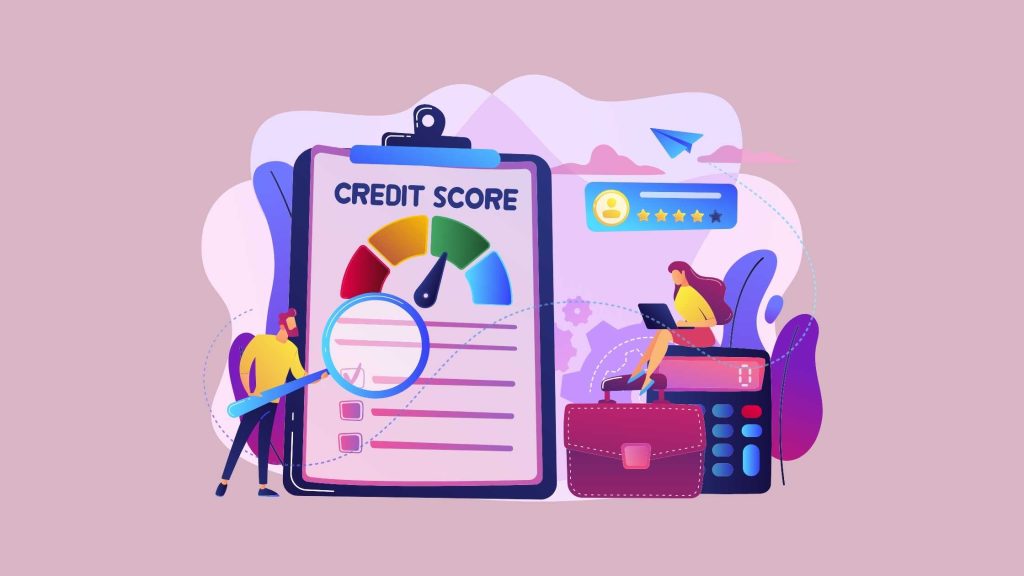Credit Score For Loan Apply : How Much Credit Score Do You Need to Get a Loan? 7 Ways to Keep Score : Comprehensive Guide
Credit Score For Loan Apply : In times of financial emergencies, loans become a lifeline for many individuals. Whether it’s an urgent medical need, education expense, or unexpected financial burden, people often turn to banks and non-bank financial institutions for assistance. While loans can provide immediate relief, the ease of obtaining them and the terms associated with repayment depend heavily on one critical factor: your credit score.
Table of Contents
A credit score acts as a financial report card, reflecting your ability to manage credit responsibly. Ranging between 300 and 800, this score determines how trustworthy you appear to lenders. A higher credit score improves your chances of getting a loan approved at favorable interest rates, while a lower score may limit your options or result in higher costs. Let’s delve deeper into the importance of maintaining a healthy credit score, what constitutes a good score, and actionable steps you can take to keep your score high.
Understanding Credit Scores: The Key to Loan Approval

What is a Credit Score?
A credit score is a three-digit number calculated based on your financial behavior, such as bill payments, debt levels, credit history, and the mix of credit types you use.
Also Read : Low credit score? 5 Best Credit Cards With Low Interest
This score helps lenders assess the likelihood that you will repay your debts on time. A credit score is typically generated by credit bureaus like CIBIL, Equifax, or Experian.
What is a Good Credit Score?
The range of credit scores falls into distinct categories:
- Excellent (740 – 800): This range signifies financial stability and responsible credit behavior. Borrowers with excellent scores enjoy the best interest rates and highest loan approval rates.
- Good (670 – 739): A good credit score allows access to a wide range of loans and credit cards with reasonable terms.
- Fair (580 – 669): While loans are still accessible, borrowers in this range may face higher interest rates.
- Poor (300 – 579): A low credit score often signals credit risk to lenders. Borrowers in this range may struggle to secure loans or face steep interest rates.
Why is a High Credit Score Important?
Having a high credit score offers several benefits:
- Easier Loan Approvals: Borrowers with high scores are more likely to get their loan applications approved quickly.
- Lower Interest Rates: Lenders often provide lower interest rates to borrowers with good or excellent scores, reducing overall repayment costs.
- Higher Credit Limits: A strong credit score indicates financial discipline, encouraging lenders to offer higher credit limits.
- Favorable Loan Terms: High credit scores enable borrowers to negotiate better repayment terms and conditions.
- Enhanced Financial Credibility: A good credit score reflects your reliability as a borrower, fostering trust among financial institutions.
The Consequences of a Low Credit Score
A low credit score can pose several challenges when seeking financial assistance:
- Higher Interest Rates: Lenders perceive borrowers with low scores as high-risk, resulting in higher interest charges.
- Loan Rejections: In extreme cases, loan applications may be outright denied.
- Limited Loan Amounts: A lower credit score may restrict the amount of money you can borrow.
- Difficulty Obtaining Credit Cards: Borrowers with poor scores may struggle to qualify for premium credit cards with attractive benefits.
- Financial Stress: The additional costs and challenges associated with a low credit score can lead to long-term financial strain.
7 Effective Ways to Maintain a High Credit Score
Maintaining a high credit score requires consistent effort and responsible financial habits. Here are seven proven strategies to ensure a robust score:
1. Pay Bills Punctually
One of the most critical factors affecting your credit score is your payment history. Late payments or defaults can significantly lower your score. To avoid missed payments:
- Set Up Automatic Payments: Automate bill payments to ensure they are always paid on time.
- Use Calendar Reminders: Schedule alerts for due dates to keep your finances on track. Punctual payments not only prevent score reductions but also gradually boost your credit score over time.
2. Regularly Check Your Credit Report
Errors in credit reports can negatively impact your score. For instance, incorrect transactions or outdated information might reflect poorly on your financial health. To stay proactive:
- Review Reports Annually: Request your credit report at least once a year from major credit bureaus.
- Dispute Errors: If you find inaccuracies, report them immediately to have them corrected. Monitoring your credit report helps you identify and resolve issues before they affect your creditworthiness.
3. Maintain a Low Credit Utilization Ratio
The credit utilization ratio is the percentage of your available credit that you use. A lower utilization ratio indicates responsible credit usage. Aim to:
- Keep Utilization Below 30%: Avoid using more than 30% of your credit limit at any given time.
- Spread Expenses Across Multiple Cards: Using multiple cards instead of maxing out one can reduce your utilization ratio. A low credit utilization ratio demonstrates financial discipline and positively influences your score.
4. Diversify Credit Types
A mix of secured and unsecured loans can enhance your credit profile:
- Secured Loans: These include home loans or auto loans backed by collateral. They pose less risk to lenders and can positively impact your score.
- Unsecured Loans: Personal loans and credit cards, which are not backed by assets, also contribute to your credit history. Maintaining a balanced credit portfolio signals to lenders that you can handle different types of credit responsibly.
5. Avoid Multiple Loan Applications

Applying for several loans or credit cards within a short period can harm your credit score. Each application triggers a hard inquiry, which can lower your score temporarily. To avoid this:
- Space Out Applications: Limit new credit applications and allow sufficient time between them.
- Evaluate Needs Carefully: Only apply for credit when necessary, ensuring it aligns with your financial goals.
6. Stay Within Your Credit Limits
Exceeding your credit limit increases your credit utilization ratio, which can harm your credit score. To prevent this:
- Monitor Spending: Keep track of expenses to ensure they remain within limits.
- Request Higher Limits: If needed, request a credit limit increase to maintain a healthy utilization ratio without overspending.
7. Avoid Closing Old Accounts
Length of credit history is another important factor in determining your score. Closing old accounts can shorten your credit history and lower your score. Instead:
- Keep Old Accounts Open: Even if you no longer use certain credit cards, keeping them open can maintain your credit history length.
- Focus on Timely Payments: Continue making timely repayments on active accounts to further boost your score.
Practical Tips for Sustaining a Healthy Credit Score
In addition to the strategies outlined above, consider the following tips to sustain financial well-being:
- Avoid Co-Signing Loans Recklessly: Co-signing a loan makes you equally responsible for repayments, which can impact your score if the primary borrower defaults.
- Use Credit Wisely: Avoid using credit for unnecessary purchases, especially if you cannot repay in full.
- Seek Financial Advice: If you’re struggling to manage debt, consult a financial advisor for guidance on improving your credit habits.
Credit Score For Loan Apply – Conclusion

Your credit score is more than just a number; it is a reflection of your financial health and responsibility. A high credit score unlocks numerous benefits, from easier loan approvals to lower interest rates. By following the seven strategies discussed above—timely bill payments, regular credit report checks, low credit utilization, diversified credit types, prudent loan applications, staying within credit limits, and maintaining old accounts—you can maintain a robust credit score and achieve long-term financial stability.
Buy Now : Options Trading Master Class
Remember, improving or maintaining a credit score is not an overnight process. It requires consistency, discipline, and a proactive approach to managing your finances. With the right habits, you can secure a strong financial future and access credit on your terms when the need arises.
Keywords : Credit Score For Loan Apply – Credit Score For Loan Apply 2024 – Credit Score For Loan Apply 2025



